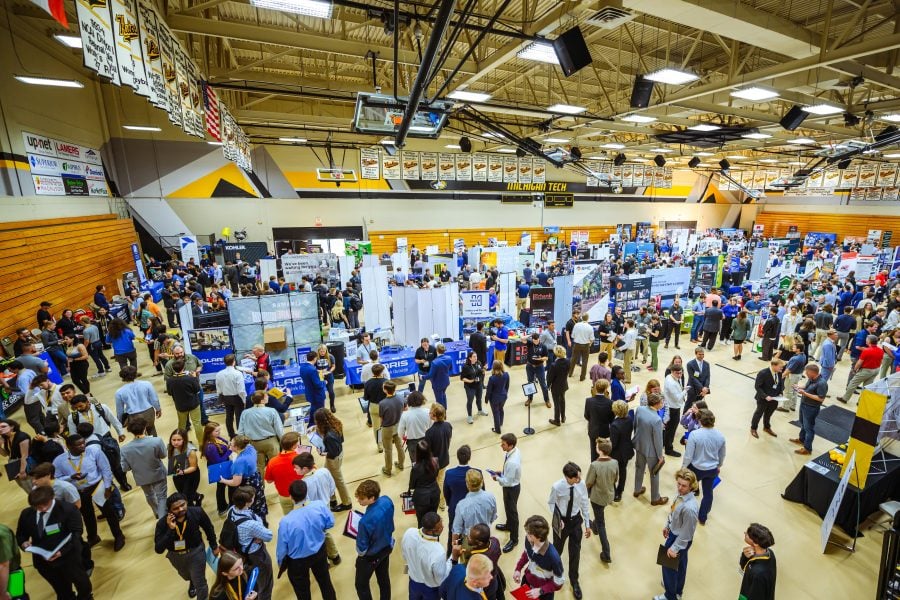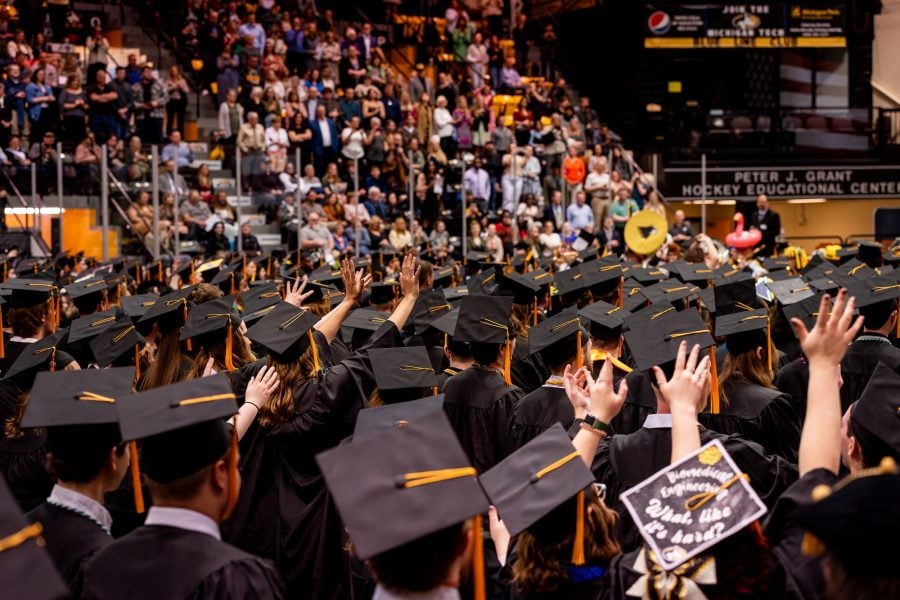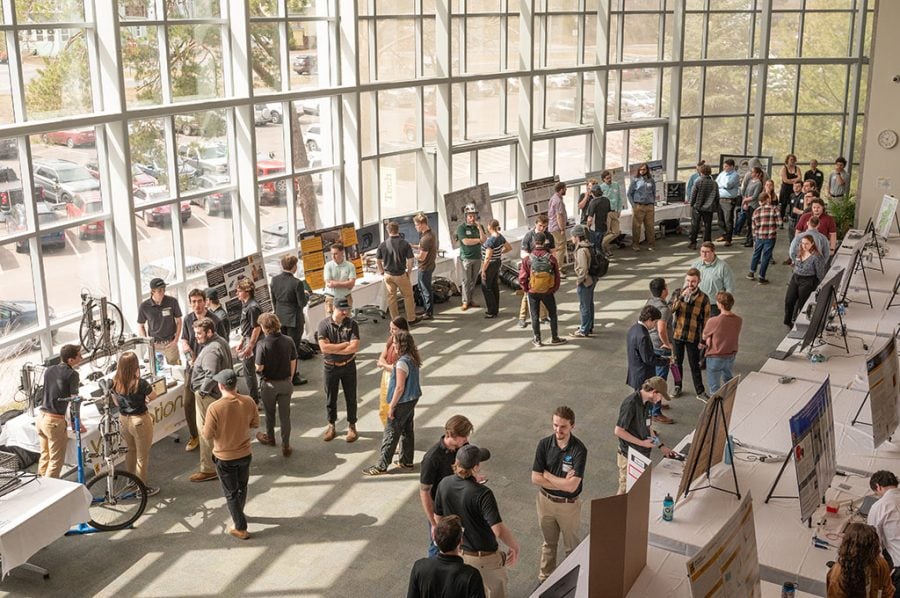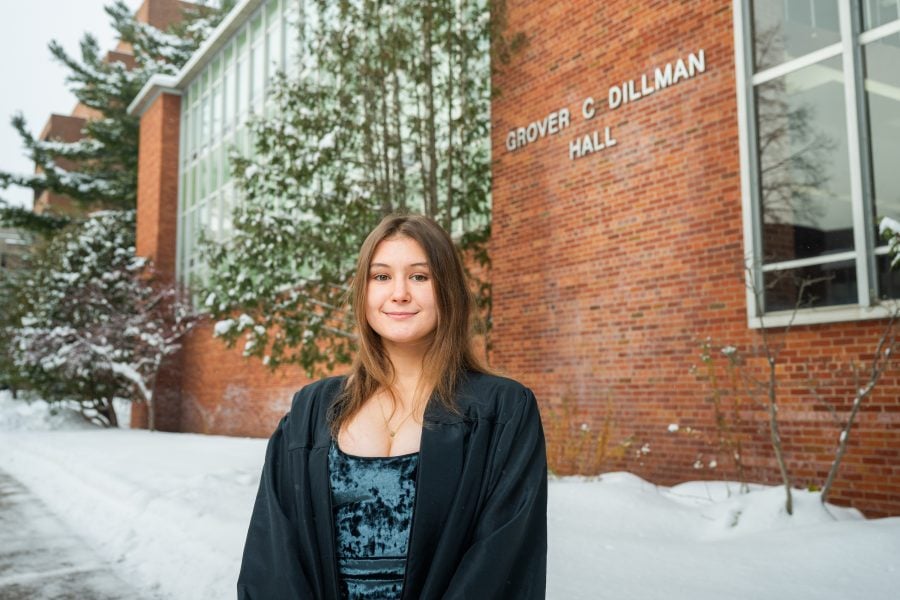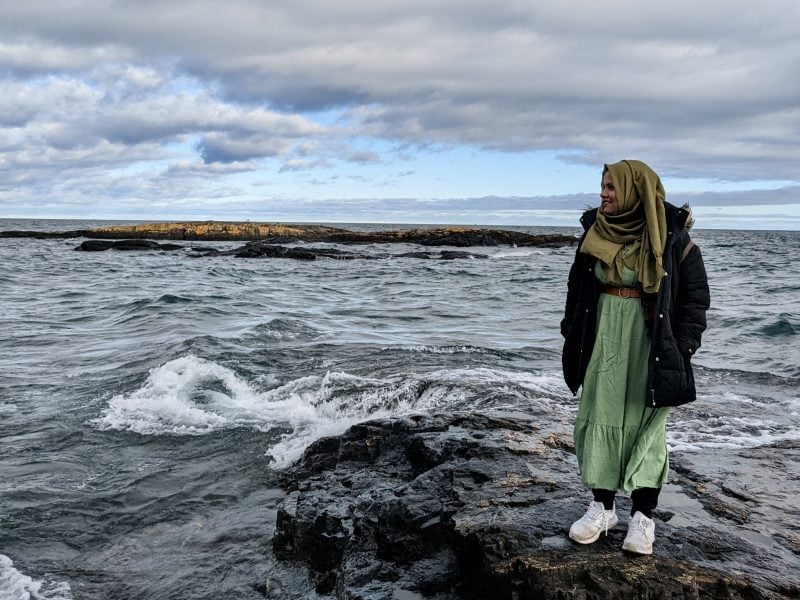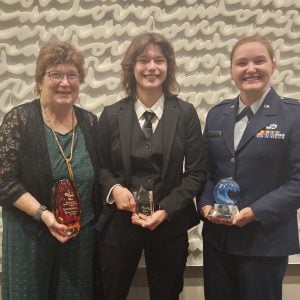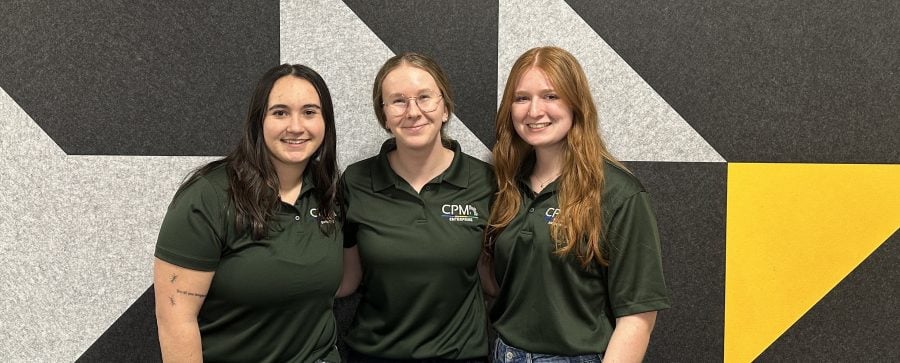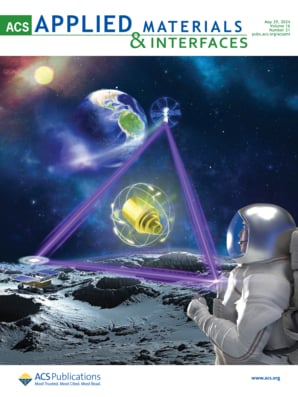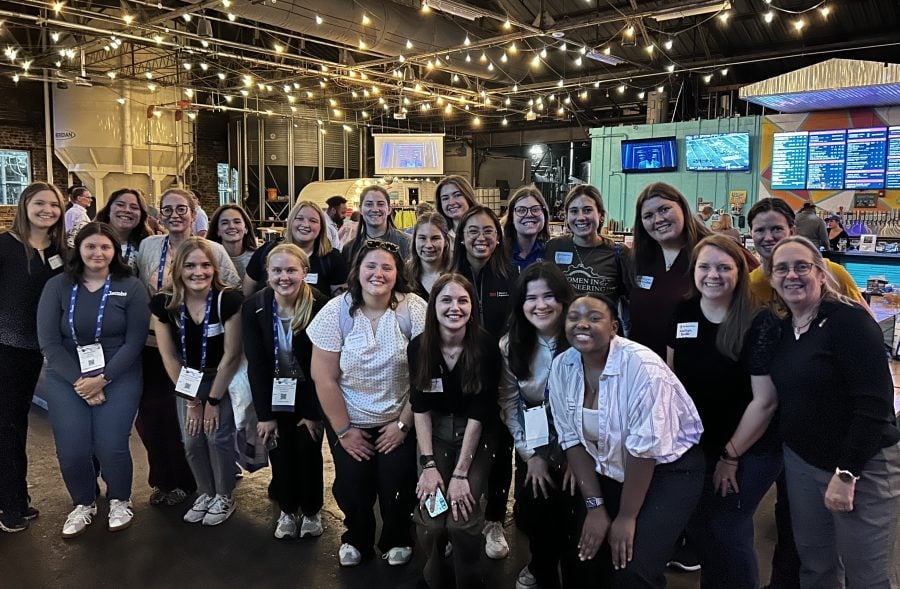
Society of Women Engineers (SWE) is celebrating 75 years of providing a robust network of advocates for any and all looking to support women engineers and their unique place and voice within the engineering and technology industry. At Michigan Tech, our award-winning SWE section is going above and beyond to help members connect with peers and industry around the world.
This October, Tech’s SWE section traveled with 17 students to WE25, the organization’s national conference in New Orleans, Louisiana. The annual conference is the world’s largest gathering dedicated to forwarding the progress of women in engineering and technology.
